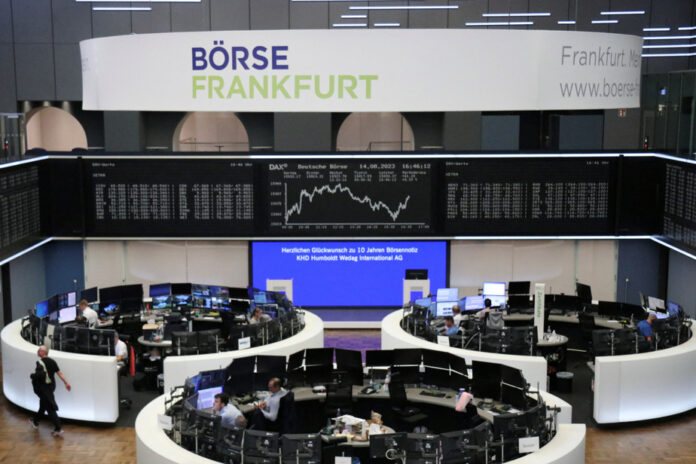(Paris) World stock markets remain in the red on Tuesday, after the publication of economic indicators in China and the euro zone confirming the difficulties and lack of economic dynamism in these regions.
In Europe, the stock market indices fell sharply in the first exchanges, but recovered during the morning: Paris fell by 0.24% around 7:30 a.m. (Eastern time), Frankfurt by 0.14%, while that London gained 0.19%.
Wall Street was heading for a slightly lower open, according to the futures of the three major indices, between 0.1 and 0.4%. On Monday, the Stock Exchange remained closed due to the Labor Day holiday.
In Asia, after a sharply rising session on Monday, the Chinese stock markets went in the opposite direction: Hong Kong lost 2.06% and Shanghai 0.71%. Tokyo rose 0.30%, its seventh consecutive increase, notably driven by the weakness of the yen.
The session is under the sign of the leading indicators of PMI activity. Initial releases have chilled investors: Services activity in China grew at a slower pace in August, confirming the trend of recent weeks.
In Europe, where the second estimates for August were published, the indicator for the French private sector was revised down to “its” strongest rate of contraction “in almost three years”, according to S
In Spain, Italy and the Eurozone, slight downward revisions have been the norm. Conversely, that of the United Kingdom ended up being better than expected.
With such a slowdown, investors are hoping that the European Central Bank (ECB) will put an end to its series of key rate hikes at its meeting on September 14, its main tool to fight inflation but with serious consequences for the economy. ‘economy.
President Christine Lagarde’s last speech on Monday gave no clear indication of this and “the ECB will not know until the day of the meeting if it will raise rates or take a break.” , estimates Neil Wilson, analyst of Finalto.
Retail companies suffered particularly in Europe after the publication of a sector note by JPMorgan analysts who revised their recommendation on most groups downwards.
Ahold Delhaize fell by 5.73%, Tesco by 2.20%, Carrefour by 1.58%.
In addition, UK low-cost retailer B
Microprocessor company Arm, whose New York IPO scheduled for September will be one of the biggest in recent years on the NASDAQ, estimated its valuation on Tuesday at up to $52 billion. It hopes to raise between $4.4 and $4.8 billion through the operation.
Oil prices fell after the weak indicator on services in China which raised fears for global demand, but remained close to their highs for the year with tensions on supply coming from OPEC.
The market is on the lookout for potential announcements from Saudi Arabia and Russia on extensions of their oil production and export cuts.
The barrel of Brent fell 0.72% to 88.36 dollars around 7:15 a.m. (Eastern time), and the WTI by 0.32% to 85.28 dollars.
The US dollar climbed against the euro and the British pound on Tuesday, taking advantage of its safe haven status and investor risk aversion. The euro fell 0.58% to 1.0733.
Bitcoin was down 0.34% at $25,740.
On the bond market, government interest rates in Europe rose slightly, continuing their trend of the previous day.















